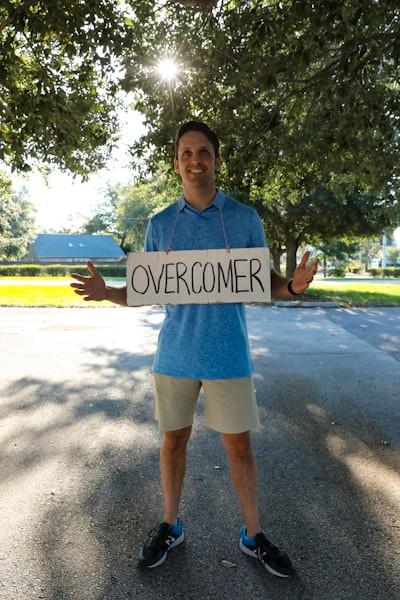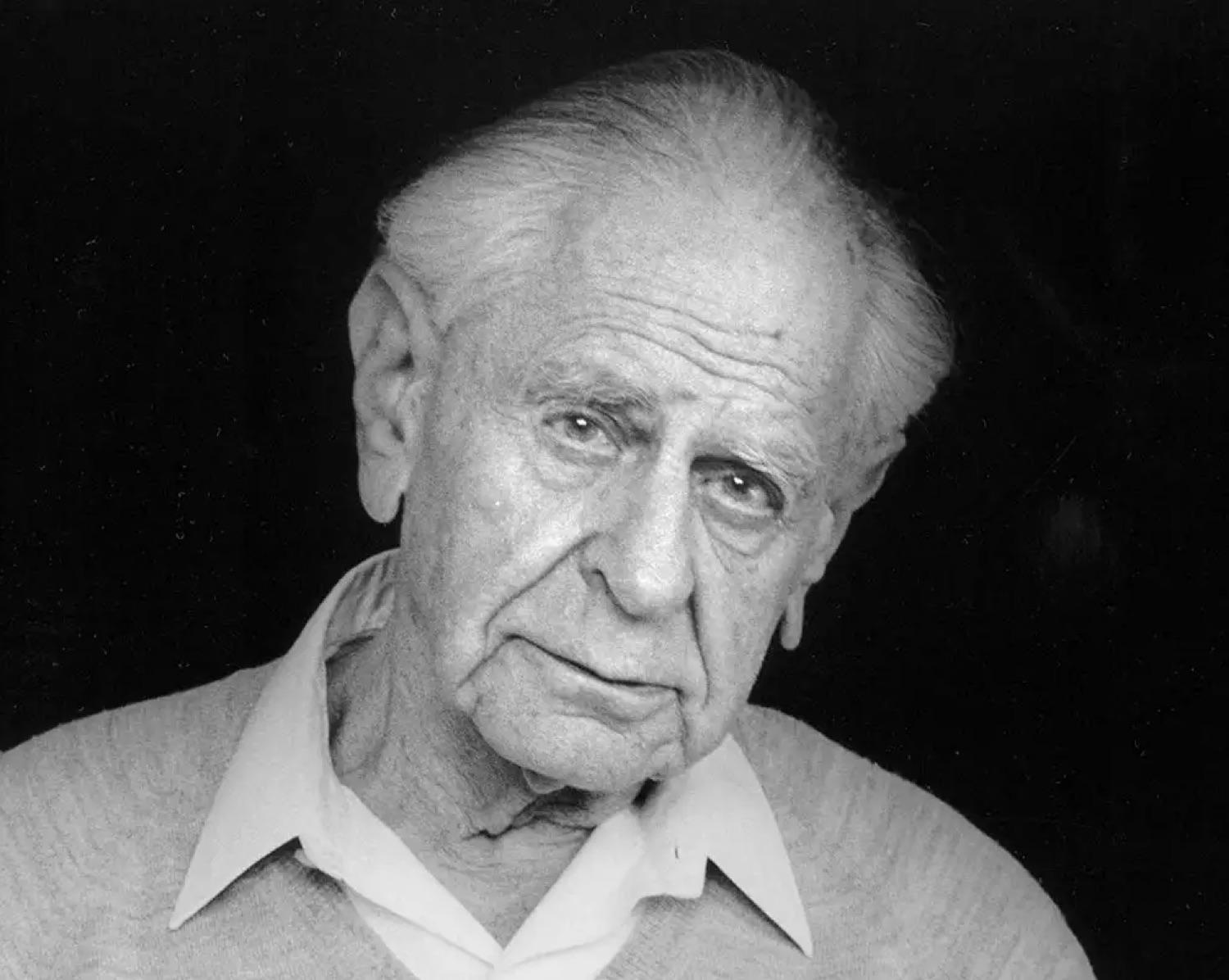How We Can Overcome Confirmation Bias: By Adopting A Falsification Mindset
Curated from: betterhumans.pub
Ideas, facts & insights covering these topics:
16 ideas
·1.2K reads
14
Explore the World's Best Ideas
Join today and uncover 100+ curated journeys from 50+ topics. Unlock access to our mobile app with extensive features.
“Theories Of Everything”, Valid For Forever
In the middle of the 20th century, philosopher and professor Karl Popper found himself mystified by the beliefs and methods of the otherwise intelligent and rational people around him.
“I found that those of my friends who were admirers of Marx, Freud, and Adler were impressed by a number of points common to these theories, and especially by their apparent explanatory power. These theories appear to be able to explain practically everything that happened within the fields to which they referred.”
29
191 reads
”Once your eyes were thus opened you saw confirmed instances everywhere: the world was full of verifications of the theory. Whatever happened always confirmed it.”
KARL POPPER
32
190 reads
The Problem: Seeing Confirmed Instances Everywhere
This last sentence should ring some alarm bells for many readers — it’s a very simple description of confirmation bias. Basically, when we gain a perspective or theory, we tend to interpret everything as confirming that idea. Whatever seems to contradict it is tossed aside or somehow contorted to fit our beliefs.
Popper saw this problem inherent in many theories — both in the physical and social sciences, and in other realms as well. After all, if we find evidence that seems to contradict our beliefs, we should be stopping to see if perhaps we need to abandon or modify our belief.
31
113 reads
The Cure: Falsificationism
As a way to cure this ill of self-confirming theories and belief systems, Popper came up with what is now called falsificationism: the idea that a theory or belief system can only be scientific if it clearly lays out what specific evidence would prove it wrong.
Basically, if we’re going to claim that we know something, we have to be willing to admit that we could be wrong about it. More than that, we have to lay out what kind of evidence would prove us wrong. We have to make ourselves falsifiable.
32
123 reads
Why Is Falsification Important?
Adopting an attitude of falsifiability does a few key things:
- it helps us to avoid many cognitive biases that can hinder intellectual growth and good decision making
- it makes us clearer thinkers by forcing us to be specific about what we think we know, and what evidence we have
- it boosts our creative thinking by making us naturally more receptive to new ideas and helping us more quickly process them
32
81 reads
Why Doesn’t Falsification Come Naturally To Us?
Our minds tend to run headlong toward safety and comfort. This is true with regards to physical safety and comfort —but it’s also true of intellectual safety and certainty. If we feel like we know something for sure — like we have a firm grasp of it — we want to hold on to that feeling.
And because we want to hold on to that feeling, we tend to manufacture certainty by either stopping the search for new information (fearful that it might endanger our feeling of certainty) or interpreting new information in a way that keeps supporting our feeling of certainty.
30
72 reads
A Simple First Step To Making Ourselves Falsifiable
The falsifiability mindset is all about thinking through the implications of beliefs, judgments, and decisions. It’s about curbing our craving for certainty. Adopting this mindset is as easy as picking up a simple practice.
For the decision that you’re making, take out a clean sheet of paper, and draw a line down the middle.
On the left side, write at the top “What I Believe to Be True.”
On the right side, write at the top “What Would Prove Me Wrong.”
33
75 reads
Do Right By The Right Side
That left side could be anything. It could be something personal and low-stakes, like “I should buy the new iPhone model” or something more substantial, like “global warming is the result of human industrial waste interacting with the atmosphere”.
The right side is where we will have to do a bit of thinking. That’s where this practice can yield dividends. Having to understand what would prove us wrong forces us to do 3 important things:
- clarify what our actual belief is
- confront the possibility that we could be wrong
- tacitly commit to changing our mind under some specific conditions
33
58 reads
How You Can Adopt A Falsification Mindset
Adopting the falsification mindset is simple. Like any exercise in thinking, it helps if you write it out, but that’s not totally necessary.
- For any belief you have, ask what it would take for you to change your mind
- Be specific about what evidence would make you change your mind
- Seek out that evidence, and be willing to change your belief if you find it
31
62 reads
Be Your Own Challenger
Adopting the falsification mindset can be a game changer for an important life decision. But it also works for smaller beliefs and judgments.
Just ask yourself how you could be proven wrong — about any old belief you have. Are you researching a big purchase? If so, what discovery would cause you to cancel the purchase? Are you working toward a professional goal? If so, what new facts or experiences would convince you that this is the wrong goal?
We all have lots of hidden biases that can be examined this way.
33
50 reads
Whenever a theory appears to you as the only possible one, take this as a sign that you have neither understood the theory nor the problem which it was intended to solve.
KARL POPPER
10
27 reads
A rationalist is simply someone for whom it is more important to learn than to be proved right; someone who is willing to learn from others - not by simply taking over another’s opinions, but by gladly allowing others to criticize his ideas and by gladly criticizing the ideas of others.
KARL POPPER
11
25 reads
The more we learn about the world, and the deeper our learning, the more conscious, specific, and articulate will be our knowledge of what we do not know; our knowledge of our ignorance. For this indeed, is the main source of our ignorance - the fact that our knowledge can be only finite, while our ignorance must necessarily be infinite.
KARL POPPER
10
22 reads
The discovery of instances which confirm a theory means very little if we have not tried, and failed, to discover refutations. For if we are uncritical we shall always find what we want: we shall look for, and find, confirmation, and we shall look away from, and not see, whatever might be dangerous to our pet theories.
KARL POPPER
10
27 reads
IDEAS CURATED BY
CURATOR'S NOTE
“In so far as a (scientific) statement speaks about reality, it must be falsifiable; and in so far as it is not falsifiable, it does not speak about reality.”
“
Xarikleia 's ideas are part of this journey:
Learn more about motivationandinspiration with this collection
How to synthesize information from multiple books
How to analyze a book
How to set reading goals
Related collections
Similar ideas
3 ideas
6 ideas
5 Ways to develop Growth Mindset
everydaypower.com
9 ideas
How to think like a detective
psyche.co
Read & Learn
20x Faster
without
deepstash
with
deepstash
with
deepstash
Personalized microlearning
—
100+ Learning Journeys
—
Access to 200,000+ ideas
—
Access to the mobile app
—
Unlimited idea saving
—
—
Unlimited history
—
—
Unlimited listening to ideas
—
—
Downloading & offline access
—
—
Supercharge your mind with one idea per day
Enter your email and spend 1 minute every day to learn something new.
I agree to receive email updates







